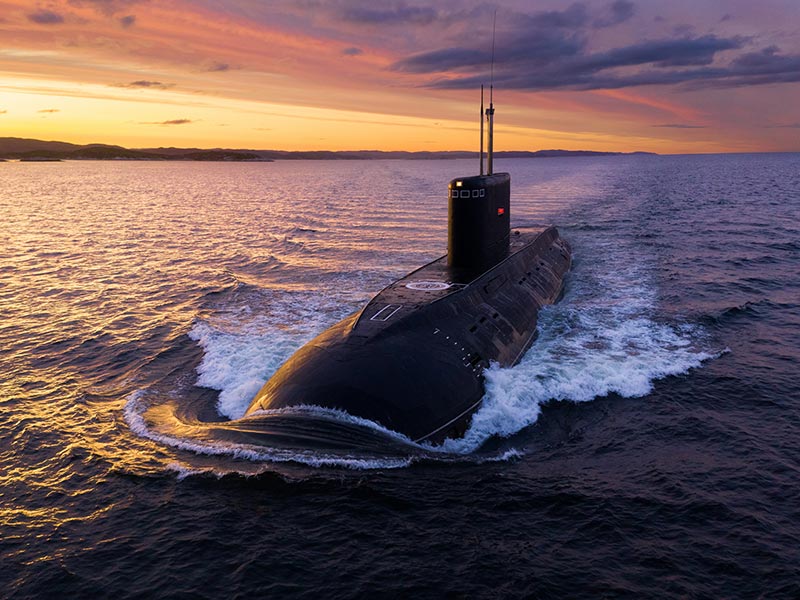A Senate report has cast doubt on Australia’s ability to avoid a ship building industry “valley of death” because of uncertainty over whether nuclear powered submarines can be built locally or delivered before 2040.
On Monday the Senate Economic References Committee released the second interim report from a long-running inquiry into Australia’s sovereign naval shipbuilding capability.
The report from the Labor-led committee said the decision to scrap the Attack Class project last year in favour of nuclear-powered submarines acquired through the AUKUS security alliance meant that the “sovereignty and sustainability” of Australia’s naval shipbuilding program is now in doubt.

While the Opposition has given in principle support to the decision to acquire nuclear powered submarines, the report said that the abandonment of Attack Class submarines, and the new program’s long timeframes and reliance on allies, could reopen a “valley of death” for the naval shipbuilding industry.
“The dependence of Australia on US and/or UK support for the nuclear boats clearly undermines the stated intent of the ‘sovereign’ shipbuilding program,” the report said.
“At the same time, the delay in the acquisition of the new submarines, not to mention the real possibility that they may not even be built in Australia, seriously undermines the stated intent of a continuous build so as to avoid the so-called ‘valley of death’.”
SA Unions raised concerns about local industry involvement in AUKUS last month after reported comments from senior Defence officials that the government was more focused more on securing capability than building local industry.
Defence minister Peter Dutton later commented that the government would “get the balance right” between supporting local industry and securing capabilities in response to foreign threats.
The Senate committee said in its report that the “entire nuclear submarine proposal seems to have been concocted with little thought for the practical realities of making it happen”.
“Who will build the boats and where the boats are to be built, along with costs, delivery timeframes, maintenance and sustainment, the status of the Collins-class, crew numbers and skills seem to have received little consideration,” the Committee said.
The report acknowledged a taskforce is in the midst of an 18-month consideration process expected to answer some of these questions but criticised a long-term lack of transparency from the Department of Defence on ship building programs.
“The Department appears to be unwilling to provide information to the committee as required,” the report said.
“What the Department does not seem to grasp, is that it is not their decision as to what they do or do not provide the committee. That is the committee’s decision—not the Department’s.”
To address the opacity, the report recommended a bipartisan approach to the implementation and delivery of AUKUS objectives and capabilities, official explanations for previous discrepancies between cost figures for major projects and training Defence staff to increase their “awareness of their democratic responsibilities”.
Government Senators rejected the report’s recommendations and commentary, claiming it “does not provide fair and reasonable recognition of the positive steps taken by the Coalition Government with respect to Australia’s sovereign naval shipbuilding capability” and that Defence has engaged properly with parliamentary processes.
The majority report labels the latest submarine acquisition programs a “shambles”.
“Thirteen years after identifying the need for an expanded fleet of 12 submarines..there is not a single new boat in the water and now not even a contract to produce the necessary new submarines. Moreover, almost six years have been wasted and $2.4 billion taxpayer dollars squandered on [Attack Class] boats that will now never be delivered,” the report said.
Do you know more? Contact James Riley via Email.

